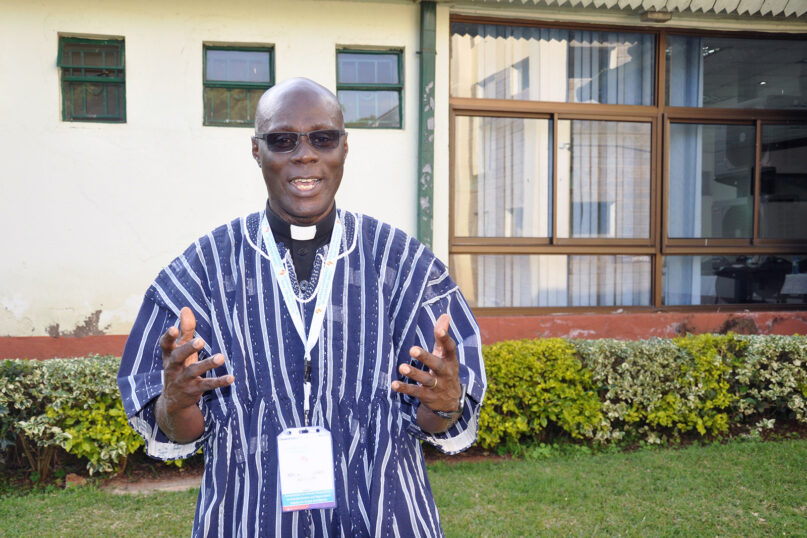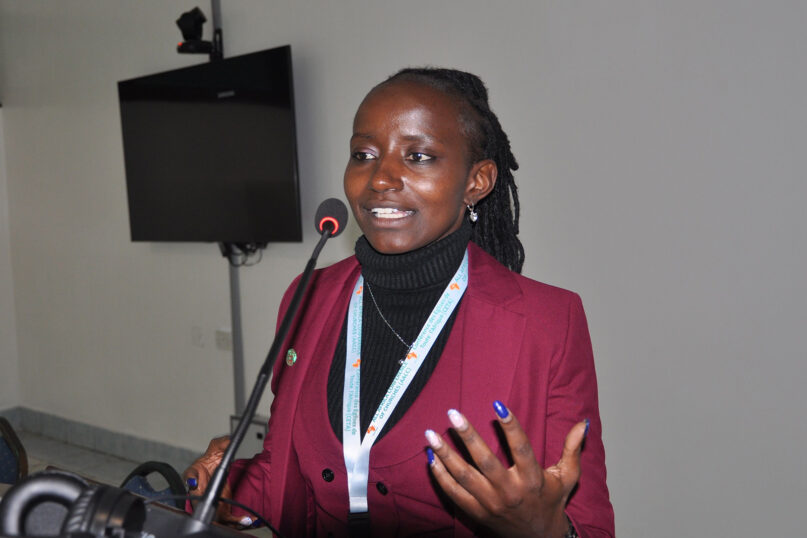NAIROBI, Kenya (RNS) — As calls for decolonization and reparations for the transatlantic slave trade gain momentum globally, African church leaders, theologians and religious scholars gathered June 3-6 for a wide-ranging conversation about how colonial countries should make amends for historical wrongs done to the continent and the place of the church in the debate.
The Consultation on Decolonization and Reparations, meeting in the Kenyan capital and convened by the All-Africa Conference of Churches, asked, “Is the whole idea of decolonization or decoloniality an African agenda, driven by African voices and priorities?” according to the conference’s website.
“It is a whole complex thing, but it’s worth engaging,” said Ven. J.W. Kofi deGraft-Johnson, an Anglican priest who is secretary general of the Council of Anglican Provinces of Africa. “The conversation has started. It’s a process (for which) all actors should be brought on board.”
The participants’ considerations went back 140 years, to the 1884-1885 Berlin Conference, when European nations assembled in the German capital and divided the continent among themselves, in what is historically known as “the scramble for Africa.”
The churches want groups that came to Africa from the West in that period — missionaries, colonizers and traders — to recognize their excesses that dehumanized Africans. While they agree apologies are necessary and some forms of reparations are important, they also agreed that African institutions need to sit together and discuss objectively what occurred at the time, the better to discern what needs to be done in the future.
“This debate and this conversation is asking, in this 21st century, what do we do?” said Kofi deGraft-Johnson.

Ven. J.W. Kofi deGraft-Johnson at the Theological Consultation on Decolonization and Reparations conference in Nairobi, Kenya. (Photo by Fredrick Nzwili)
Also, they want Africans to acknowledge their role in both occurrences.
“We sold ourselves, we were (complicit) … Our local chiefs and others (abetted) it. We all must accept the parts we played, and put humanity at the center of the discussion. It is not about the color of our skin, (because) we are created in the image of God,” he said.
Olukayode Oluwale Ojedokun, vice chancellor of the Protestant University of Rwanda, said that arguments about colonization are problematic, since the people who bore the brunt of the injustices are either dead or are too old to take part in the discussion.
“That’s the missing part of the conversation. Whether we call them victims, they are not here,” he said, asking whether the church can speak for them. “We should have the prophetic voice, but there are the (African folk religion) traditionalists, there are the Muslims. There are people who have no religion,” he added.
The conference’s discussions were prompted in part by the 2025 theme of the African Union: “Justice for Africans and People of African Descent through reparations.”
Tinashe Gumbo, the All-Africa Conference of Churches’ executive secretary for economic and ecological justice, urged the conference participants to press the union to push for an acknowledgement and apology from the Global North and global institutions, including Western churches, for historical harms committed against Africans.
“Only when there is an admission of the past wrongs can there be true commitment to repair and reconciliation,” Gumbo told the gathering.

The Rev. Jackie Makena at the Theological Consultation on Decolonization and Reparations conference in Nairobi, Kenya. (Photo by Fredrick Nzwili)
But some scholars, such as the Rev. Jackie Makena, a young theologian from the Methodist Church of Kenya, said reparations for historical injustices need to take several forms to address both material and non-material harms. “African churches can frame forgiveness as a spiritual act that empowers communities to release trauma from historical injustices, drawing on biblical teachings, while emphasizing that true forgiveness requires truth telling, acknowledgement of the wrongs, repentance and accountability.”
Makena added that demands for apologies for historical wrongs should be approached with care. “Symbolic acts like apologies or memorials are valuable but must be paired with tangible actions,” she said, arguing that “direct payments and debt cancellation would help rectify economic losses from exploited labor and resources.”
The Netherlands, Denmark, France, the United Kingdom and the European Parliament have already issued public apologies for their role in the slave trade. During his papal visits, to Cameroon in 1985 and to Goree Island in 1992, Pope John Paul II issued an apology for the church’s role in slavery. In 2021, Germany issued an apology for its role in the slaughter of the Herero and Nama people in Namibia, labeling it a genocide.
African countries, such as Benin, Ghana and Uganda, have also apologized to the Africans in the diaspora for their involvement in the slave trade.
DeGraft-Johnson said precious African artifacts, looted by colonizers and missionaries, had to be part of the reparations conversation.
“The French took, the German took, the Italian took, the British took — almost every colonizing country took. I am not sure even our cultural leaders would be able to quantify what was taken away,” he said.
But Ojedokun, who stressed that many of the artifacts are irreplaceable, questioned whether Africa is in a position to maintain them. “My argument is that we claim those artifacts, but we should come to an arrangement where we lease them, so that they are kept safe and whatever money, whatever income, comes to us,” he said.



